Media | Articles
Racing 101 #4: Why racing is so different … and difficult
Ross Bentley is a professional driving coach, sports car racer, and author of the bestselling Speed Secrets book series. He will join us each Monday to explain and dissect aspects of high-performance driving. Sharpen those pencils, take a seat, and speak up in the comments below. Class is in session.
This whole racing-a-car-thing should be easy, right? After all, everyone drives.
Wait a minute. I’ve had ex-Navy SEALs, current and former Major League Baseball pitchers, brain surgeons, and even rocket scientists tell me that racing a car is the hardest thing they’ve ever done.
If you were to ask someone who has never raced how hard they think it would be, they’ll likely relate it to having driven a mountain highway, or across the country. I’ve received responses like, “How hard could it be? I drive every day, and it’s not hard.”
That’s the problem.
Marketplace
Buy and sell classics with confidence
I fly upwards of two hundred thousand miles every year to racetracks all over the world, coaching drivers. I’ve held the controls of my friendʻs aerobatic plane, and even done a 360-degree, over-the-top and upside-down loop. I’m halfway through training to get my helicopter pilot’s license. And yet, I haven’t been asked to join the Top Gun program to fly fighter jets.
Racing is much closer to flying fighter jets. All those other things I’ve done in the sky are, at most, flying’s version of driving the twisties on the Tail of the Dragon, or Highway 1 in Northern California. In other words, it’s nothing like it.
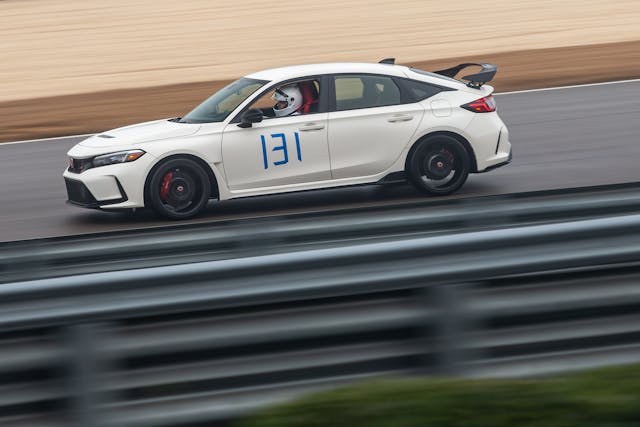
For many people, they can’t even imagine what it takes to fly a helicopter, so they think it’s hard. (I’ll let you in on a little secret: It is hard, and probably the skill closest to the challenge of racing wheel-to-wheel on a racetrack). Almost every adult can imagine driving a car and they do it on a regular basis. That’s why it’s hard for non-racers to understand just how difficult it is to do what we do on the track.
I once carved a turkey for Christmas dinner. I’m sure that slicing into the head of a fellow human, opening their skull, and carving away at a brain tumor is at a completely different level. That’s the difference between driving on a cross-country road trip and sprinting out of Laguna Seca’s Turn 11 with a pack of twenty-five rivals. Everyone is slapping the gas pedal to the floor, shifting through the gears while accelerating up and over the blind, curved hill crest, and then playing chicken with the other crazies to see who begins braking last and latest for the 180-degree, double-apex Andretti Corner. All the while, you’re closer to other cars than they would be in a Costco parking lot on a Saturday morning. Oh, and you’re traveling at about 100 miles per hour.
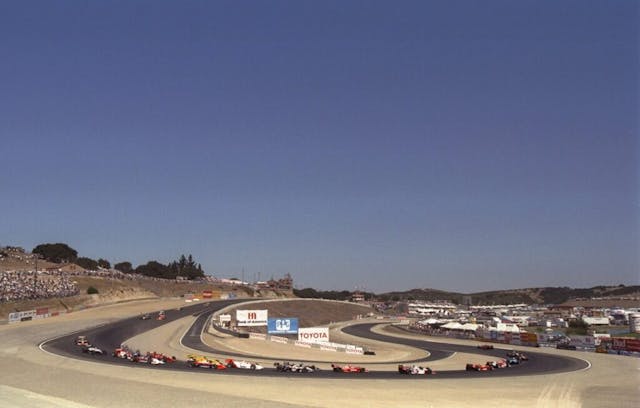
Every one of those top-of-their-professions folks I’ve coached thought that racing against professional race drivers would be about as challenging as the major successes they had already accomplished in their lives. It makes sense, right? They have this little voice in their head asking over and over again, “Why is this just so damn hard to do?”
What you or I do in our road cars every day is pretty much the same as what we do when we race on a track. We push down and let off the brake pedal. We rotate the steering wheel to guide our car in the direction we want it to go. We push down and let off the gas pedal. We look straight ahead, turn our heads to see through corners, and glance in the mirrors to see where other cars are. We either shift gears or let the mechanical and computer geniuses hidden somewhere in our cars do that for us. We position our car in relation to other cars so as not to hit them. (At least, that’s our intention.)
The difference with racing is that we do all of those things at different rates—some much faster, some actually slower. The timing in which we do them in relation to the others is also different, and some are even done in combination with one another. Some of them are done with much more force, some with a surprising, extremely subtle, delicate, and sensitive movement. All of them are done under much more mental pressure, challenging scientific research that proves humans don’t actually multitask.
A racer’s mental processing speed is like comparing a super-computer to an abacus. The calculations are performed in sauna-like conditions, with g-loads pulling your head out the window. Your helmet doesn’t help the weight, but you need it because you could always hit something, dropping from freeway speeds to zero in less than a car length.
And unless you’re deliberate about how you drive on the road, you may be developing habits that go against what you should be doing on the track.
Picture beautiful choreography of the pedal, wheel, shifter action with mental calculations and decisions. It’s like ballet in fast-forward. Or is it like pogo dancing at a punk rock concert? I mean, sure, they both begin by standing on two feet, and you use your entire body, but the timing and rhythm are drastically different.
Racing is just different … and difficult. And that’s okay with me.
***
Check out the Hagerty Media homepage so you don’t miss a single story, or better yet, bookmark it. To get our best stories delivered right to your inbox, subscribe to our newsletters.
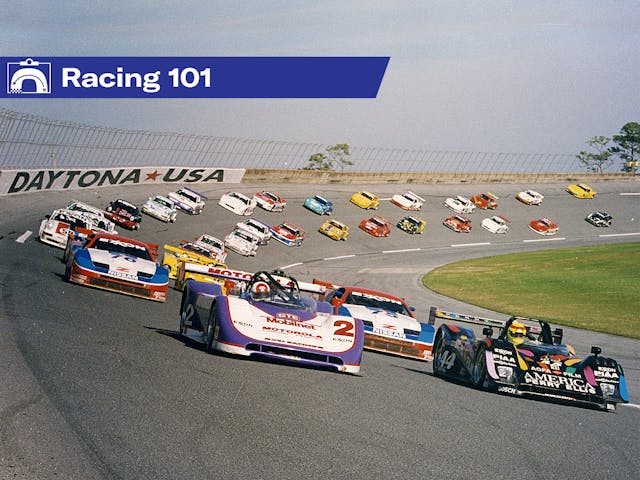

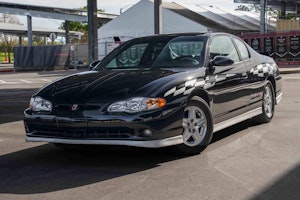





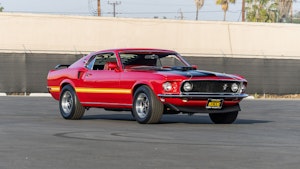

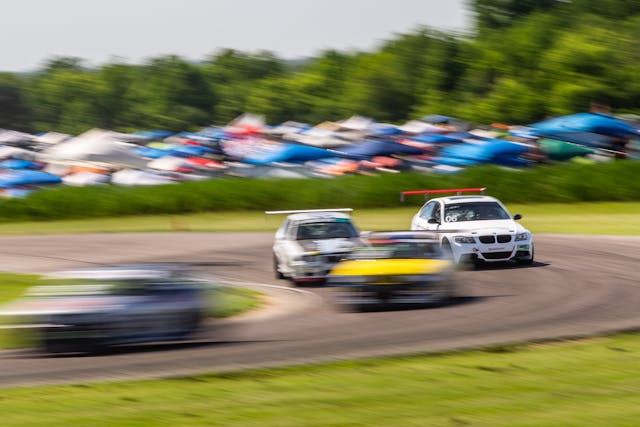






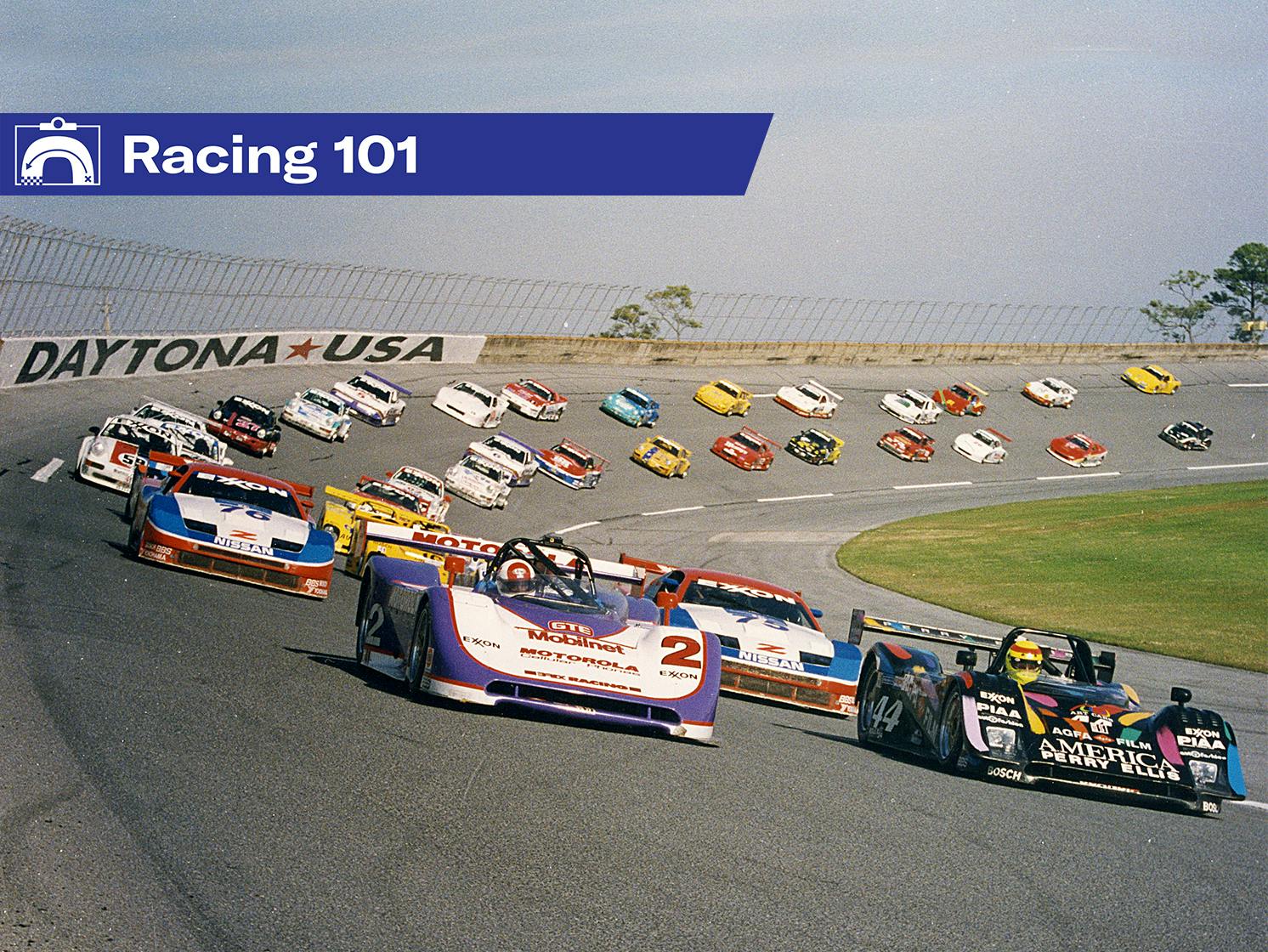
Wow Ross, you’re still out there teaching racing and driving… been a good career for you, eh? I hope all is well with you and maybe we’ll cross paths once more…